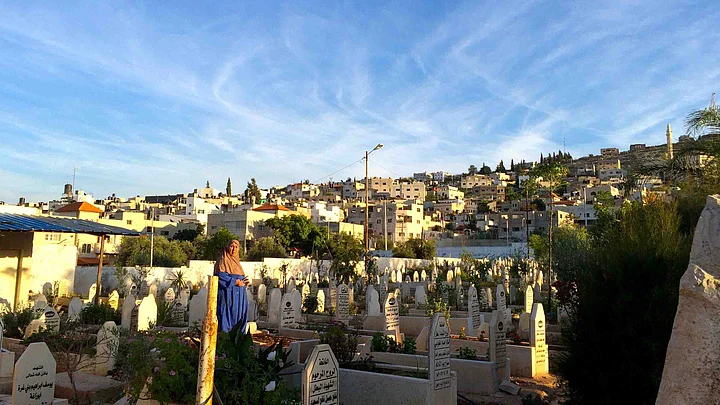In 1989, Jan Natya Manch founder member, Safdar Hashmi, was killed while performing Halla Bol on a street of an industrial township, on the outskirts of Delhi. In 2011, Juliano Mer Khamis, founder member of Freedom Theatre, in Jenin Refugee Camp, Palestine, was killed outside the theatre by unknown, masked men.
Perhaps this is what made members of the Palestinian group identify with the Indian theatre group and make it want to know more about its street theatre. So the two groups are coming together to collaborate on a joint production in which both, Arabic and Hindi will be spoken. While actors from Palestine will soon come to India, Sudhanva Deshpande, actor-director-writer, with Jan Natya Manch, visited Palestine to conduct workshops and learn about the circumstances in which Freedom Theatre operates.
At one of Junoon’s Mumbai Local sessions, Deshpande shared his experience of seeing first-hand the tormented lives Palestinians live in refugee camps. Set up in 1948 by the UN for those who lost their homes in the 1948 Arab-Israeli War, the camps are far from being peaceful oases in a war-ravaged terrain.
Towers manned by Israeli soldiers, routinely fire tear-gas shells, loaded with chemicals, at the Palestinian refugees. Their water tanks are targets of shooting and the ovens, in which they bake large, round loaves of bread, are periodically broken. UN-established schools have bullet marks and the students studying here are so petrified of attacks that they have pleaded with the authorities to do away with windows,”
– Sudhanva Deshpande, Jan Natya Manch
“I saw a lady visiting six graves,” he recalls. “One of them was just about two-feet long.”
Surprisingly, in all this bleakness, art and culture are thriving—art and culture of protest. Two lines from a poem by Taufique Ziad project the spirit of this culture. “Ferment rebellion in one’s children/ as yeast in the dough,” he urges.
In theatre, Juliano Mer Khamis and Zakaria Zubeida came together to start Freedom Theatre. Inspired by Juliano’s Israeli mother’s initiative, Care and Learning, set up to counter post-trauma stress in children, Freedom Theatre has staged adapted versions of Animal Farm and Alice in Wonderland as well as many original plays with political sub-texts.
Zubeida, former military chief of the Al-Aqsa brigade that fought fiercely against Israel forces, renounced violence to co-found this theatre group. Ironically, he was thrown into an open jail after he accepted amnesty from the Israelis. “In his jail, he has a television (on which he had seen a documentary on Safdar Hashmi), a laptop, books, dumbbells etc; but no picture of his family,” narrates Deshpande.
Deshpande found it amazing that, though graves pock-mark the camps, no one here is despondent. “A spirit of hope is to be seen everywhere—in the lady at the graveyard, in children, in the graffiti on walls, and even in the body language of shop mannequins,” states Deshpande.
“The older families still carry the keys of the houses from which they were expelled, sure of going back there, someday. This is why you see the key symbol in many of the structures.”
The challenge before Jan Natya Manch now is in writing a play that will capture this spirit in its joint venture with Freedom Theatre. “How we translate the everyday events of their life into a quality play that both Palestinians and Indians will relate to is the big question before us,” says Deshpande.
